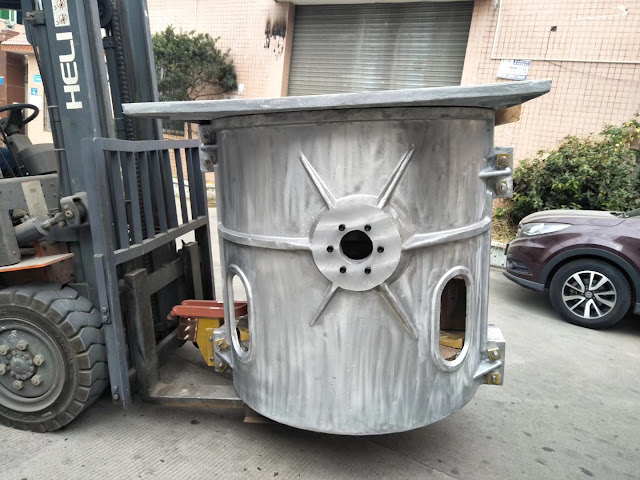Refractory Casing for Induction Furnace
Refractory casing, as known as high temperature-resistant casing, or silicone rubber fiberglass casing, is made of high-purity alkali-free glass fiber, and then coated with organic silica gel on the outer wall of the pipe and vulcanized. After vulcanization, it can be used for a long time in the temperature range of -65°C - 260°C and maintain its soft and elastic properties.
The refractory casing can be used in high-temperature workshops. Many pipes, valves, or equipment have very high internal temperatures. If they are not covered with protective materials, it is easy to cause burns or heat loss. The refractory sleeve has better thermal stability, radiation resistance, and heat insulation than other polymer materials, preventing accidents and reducing energy consumption. If the temperature is too high, save the cooling cost. Moisture-proof, oil-proof, weather-proof, and anti-pollution, prolong the service life of the equipment.
The cables and hydraulic pipes near the smoke shield arm of the intermediate frequency induction furnace are easily damaged due to the splash of high-temperature molten steel. The refractory casing of Beijing Guweihao Packaging Materials Co., Ltd. can effectively protect hydraulic pipes and cables from high-temperature damage and is an economical high-temperature protection solution for hoses and cables where molten steel is splashed. High-temperature resistant sleeve, silicone rubber glass fiber sleeve, made of high-purity alkali-free glass fiber, and then coated with organic silica gel on the outer wall of the tube and vulcanized. After vulcanization, it can be used for a long time in the temperature range of -65°C - 260°C and maintain its soft and elastic properties.
The refractory casing can be used in high-temperature workshops. Many pipes, valves, or equipment have very high internal temperatures. If they are not covered with protective materials, it is easy to cause burns or heat loss. The refractory sleeve has better thermal stability, radiation resistance, and heat insulation than other polymer materials, preventing accidents and reducing energy consumption. If the temperature is too high, save the cooling cost. Moisture-proof, oil-proof, weather-proof, and anti-pollution, prolong the service life of the equipment.
The cables and hydraulic pipes near the smoke shield arm of the intermediate frequency induction furnace are easily damaged due to the splash of high-temperature molten steel. The refractory casing of Beijing Guweihao Packaging Materials Co., Ltd. can effectively protect hydraulic pipes and cables from high-temperature damage and is an economical high-temperature protection solution for hoses and cables where molten steel is splashed.
Free send inquiries to stella@hanrm.com or inquiry99@hanmetallurgy.com if any needs.
Email: stella@hanrm.com Or stellarollingmill@gmail.com inquiry99@hanmetallurgy.com
Whatsapp/Wechat:+8615877652925
Website: https://www.hanmetallurgy.com
.jpg)

评论
发表评论